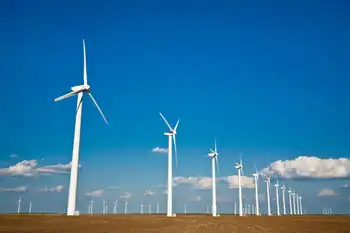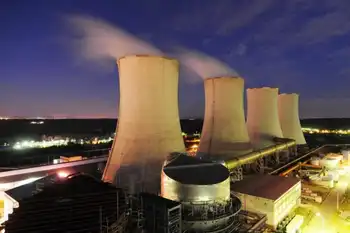Mississippi poised for wood pellet production
By Delta Farm Press
Arc Flash Training CSA Z462 - Electrical Safety Essentials
Our customized live online or in‑person group training can be delivered to your staff at your location.

- Live Online
- 6 hours Instructor-led
- Group Training Available
Wood pellets are made of the waste products of lumber production, and they can be burned for heat in homes and used to produce energy for industry. The knowledge and technology to make wood pellets have been around for centuries.
David Jones, a researcher in Mississippi State University's Forest and Wildlife Research Center, said wood pellets have been made and used in the United States since the 1970s.
The market for wood pellets has grown in the past decade, pushed by the Kyoto Protocol signed in Japan in 1997. This protocol took effect in 2005 and set binding targets for 37 industrialized countries and the European community to reduce greenhouse gas emissions.
"The countries that signed on had to produce a certain percentage of their energy from carbon-neutral materials," Jones said. "According to the protocol, wood pellets fit the bill."
Wood pellets are made solely from wood. These leftovers of timber production are dried and sent through a hammer mill that turns out small particles of consistent size. These are forced through a series of dies, or shaping devices, that makes pellets.
"The heat and pressure applied in the process causes the lignin - the natural glue in wood that holds it together - to liquefy briefly and harden again as pellets," Jones said. "The pellets are just as hard as the wood was, but shaped differently."
The sawdust and shavings used in pellet formation are in-demand items also used for animal bedding, wood-fired broiler operation and paper production. Jones said when sawdust and shavings are not available, pulpwood can be used.
Few Mississippians heat with wood pellets, mainly because the state's mild winters do not make swapping an existing furnace for a pellet-burning unit economically viable.
"Many people in the Northeast use wood pellets because they are cheaper than heating oil," Jones said. "Most of the burners look like regular wood-fired stoves, but they have grates like in old coal stoves. Many have automatic hoppers that are fed continuously from outside, making them efficient."
Jones said on a per-weight basis, wood pellets do not offer as much energy as oil, but they are currently cheaper than oil. Coal will always be less expensive because of the amount of energy in a ton of coal, but it is not in demand for home heating.
Much of the electricity produced in the United States is generated through coal burning. Jones said some power companies are co-firing, or adding wood pellets to the coal as it is burned, reducing emissions.
"Power companies found that if they keep the percentage right, they don't have to make modifications to their systems," Jones said. "The upper limit of wood pellet use in coal-fired power production is around 10 percent."
To date, there is a four-year-old wood pellet mill in Amory, Miss., and a one-year-old mill in Wiggins, Miss. MSU has assisted this industry in an advisory capacity, providing information to these mills and others in the state in the planning and development stages.
"The biggest thing MSU has worked on is ash content of the various types of wood," Jones said. "Most of the problems have been worked out years ago, so MSU will stay involved and help in any way we can, but there doesn't seem to be much need for technical assistance."
Nearly all the wood pellets produced in Mississippi are shipped to Scandinavian countries, with some going to the northeastern United States.
"This market continues to grow," Jones said. "As more countries are trying to find greener alternatives to produce heat and power, they are turning to wood pellets."
Lawrence King, owner of 3K Lumber in Calhoun County, Miss., and founder of the wood pellet mill in Amory, had even bigger predictions for the industry.
"Demand will exceed production for 10 to 15 years," King said. "Just about all the pellets made in the South go overseas. Right now, the overseas market is expanding, so that what's made in the South is not a drop in the bucket to what they need."
King said Mississippi is ideally situated to become a major producer of wood pellets. The state has significant furniture production, which creates a great deal of sawdust and planer shavings that can be turned into wood pellets. The state's climate is perfect for timber production, and the production of wood pellets is a good use of the small trees that are thinned from stands.
King said Mississippi has extensive acres of forestland in the Conservation Reserve Program. Timber stands must be thinned after about 15 years to allow the remaining trees to grow into high-profit sawtimber. Thinned trees are too small for sawmills to use, and transportation costs prevent them being shipped to other markets. Most are chipped and made into paper, but the supply often exceeds demand, driving down value.
"This is perfect for wood pellets," King said. "Pine has a little higher BTU rating than hardwood sawdust, so it burns a little faster and hotter than hardwood."
This energy content makes pine desirable for wood pellet production.
"Because of our climate and the availability of timber, once people in the state realize the potential we have in wood pellet production, we will no longer be the poorest state in the nation, but one of the richest states," King predicted.











